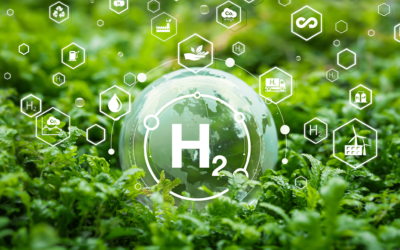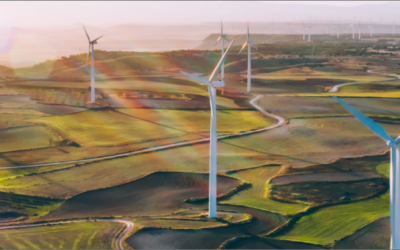On Budget Day 2022 (‘prinsjesdag’), the Dutch government presented the new national budget plans for 2023. According to these plans, the Netherlands needs to become much more sustainable. Fortunately, it is not just about raising taxes and laying down more obligations; it is also about attractive grants! This article presents a selection of the plans for grants in the fields of energy, environment and sustainability.
Positive and negative incentives
To achieve its climate goals, the government will once again be using positive and negative incentives in the coming year. Negative incentives involve tax increases (for instance by raising the carbon levy) and obligations (such as subjecting companies to energy-saving obligations), while positive incentives will typically consist of grants and other incentives.
This means that existing legislation will have to be examined with a critical eye every year, for instance because the intended changes in carbon reduction, sustainability and circular business practices are still being implemented too slowly. The good news is that this could lead to extensions of existing grant schemes, even entirely new grant schemes or internal ‘distribution funds’, such as the Climate Fund (‘Klimaatfonds’), the Transition Fund (‘Transitiefonds’) and the Mobility Fund (‘Mobiliteitsfonds’).
General grants for entrepreneurs
The EIA (‘energieinvesteringsaftrek’ or Energy Investment Allowance) and MIA (‘milieuinvesteringsaftrek’ or Environmental Investment Allowance) could be considered as the two most important generic schemes for entrepreneurs who are looking to invest to their advantage in sustainable business assets. Because these schemes are being called upon more frequently, the government wants to increase the budgets structurally: the EIA budget by 100 million euros a year (to 249 million euros), and the MIA by 50 million euros a year (to 194 million euros).
Not as generic, but at least as important for the climate goals in the Netherlands is the SDE++ scheme (stimulation of sustainable energy production and climate transition), an exploitation grant for large-scale clean energy generation. In 2023, the scheme will be divided into so-called ‘domains’ so that the available budget can be allocated more effectively to specific techniques. This will improve grant opportunities for projects concerning issues such as hydrogen production, green gas and advanced renewable fuels. Similarly, the maximum grant intensity within the ‘domains’ will be increased from 300 euros per tonne of carbon to 400 euros per tonne to allow more room for technologies with higher grant intensity, such as aquathermal energy, solar thermal energy and residual heat.
Finally, there are also plans for green investments by making it easier to finance SMEs through guarantees/securities. For this, the government is considering the introduction of a new component (‘BMKB-groen’) as part of the current BMKB scheme, for which the conditions and guarantees will be extended.
Industry: sustainability and innovation
In recent years, several grant schemes have been introduced to help the industry sector with respect to major investment and innovation projects. While the EIA, MIA and SDE++ mentioned above are also very important for industrial companies, they can also apply for grants under the VEKI scheme (for accelerated climate investments in the industry). This scheme will continue and be ramped up in 2023 with an additional 28 million euros budget from the Climate Fund.
In addition, there are plans for a new national investment scheme for industrial climate projects’ (‘Nationale Investeringsregeling Klimaatprojecten Industrie’ or NIKI). This new scheme is due to be launched in 2023 and will focus on larger carbon-reducing projects using alternative/unique technologies, such as electric cracking or green chemistry, which are not really in line with existing grant schemes. Among other things, the scheme offers opportunities for the ‘larger emitters’ within the industry.
The current TSE programme (Top Sector Energy) focuses more on supporting innovation projects. It includes grant schemes like DEI+ (for pilot and demonstration projects), MOOI (for innovative energy solutions by consortia) and HER+ (renewable energy transition). There will be new application rounds for these schemes in 2023 as well. For this, interested parties can call on the many years of experience that EGEN has acquired.
Another important spearhead is hydrogen: through the IPCEI Hydrogen scheme, the government is committed to a stronger role for green hydrogen in the competitive position of the Netherlands and Europe compared to other continents. The Ministry of Economic Affairs and Climate wants to invest heavily in Dutch IPCEI projects: a total of 35 million euros for the first round of projects between 2022 and 2025. For the second round (between 2023 and 2026), 785 million euros has been set aside, and another 799 million euros for the third and fourth rounds (between 2023 and 2030).
Circular economy and Climate
Various plans are afoot in the field of the circular economy, as the government wants the Netherlands to be completely circular by 2050. To contribute to this, there will be new grant possibilities in 2023 for major circular chain breakthrough projects (in addition to the existing scheme for regular circular chain projects). Furthermore, a new SME incentive programme to develop and scale up recycling is due to be launched in 2023.
Work is also being done to set up the new Climate Fund (‘Klimaatfonds’), a large government fund for which 35 billion euros has been earmarked for the next 10 years. In anticipation of the fund’s launch, the Dutch government will start making some major investments in 2023, including in wind-to-sea projects (180 million euros), heat grids (200 million euros) and hydrogen (146 million euros).
Sustainability in the built environment
Several schemes have been set up in recent years concerning making buildings more sustainable and ensuring that there is good and affordable housing stock available. This is set to continue in 2023, although there may be changes. Below, we briefly mention some announced plans and notable changes.
- There will be a new investment grant for the construction of heat grids in the built environment (‘Maatschappelijke Investeringssubsidie Warmtenetten’ or MIW).
- The existing Housing Impulse Scheme (‘Woningbouwimpuls’) for large housing projects run by municipalities will be extended until 2033. In total, 100 million euros will become available for this in the next 10 years.
- The current grant scheme for gas-free rental homes (‘Stimuleringsregeling aardgasvrije huurwoningen’ or SAH) will be simplified: the intention is to gear the scheme more towards applications from housing associations and mixed owners/housing associations.
- The Renovation Accelerator Grant Scheme (‘Subsidieregeling Renovatieversneller’ or SRV) will be converted into a grant for process support and the matching of market participants who want to take on large-scale projects to make houses, including rental houses, more sustainable.
Transport, mobility and infrastructure
For these themes, too, the Budget Memorandum distinguishes between public sector investment, investment grants and innovation grants. The government will be investing billions more in ‘mobility’, for instance, for building and improving national infrastructure, making new housing more accessible, and building infrastructure for hydrogen. As far as grant schemes that will continue into 2023, the following come to mind:
- The investment Scheme for emission-free company cars (‘Stimuleringsregeling emissieloze bedrijfsauto’s’ or SEBA).
- The demonstration scheme for climate technologies and innovations in transport (DKTI-Transport) with grants for innovative projects focusing on sustainable transport.
- The grant scheme for clean and emission-free building equipment (‘Subsidieregeling schoon en emissieloos bouwmaterieel’ or SSEB).
- The grant scheme to encourage the transport of goods by rail (‘tijdelijke subsidieregeling stimulering goederenvervoer per spoor’), an allowance for freight carriers wishing to transport goods by rail.
- The AanZET, an investment grant for the purchase of clean lorries.
What’s next?
In the time ahead, the Dutch House of Representatives will be busy debating the government’s plans and accompanying budgets. Only then can the announced changes be recast into new (or revised) grant schemes. It goes without saying that EGEN (together with its sister companies) will keep you abreast of all of this via our websites and newsletters. If you have urgent questions that cannot wait, please use the contact form below. We will be happy to see whether we can be of service to you!


